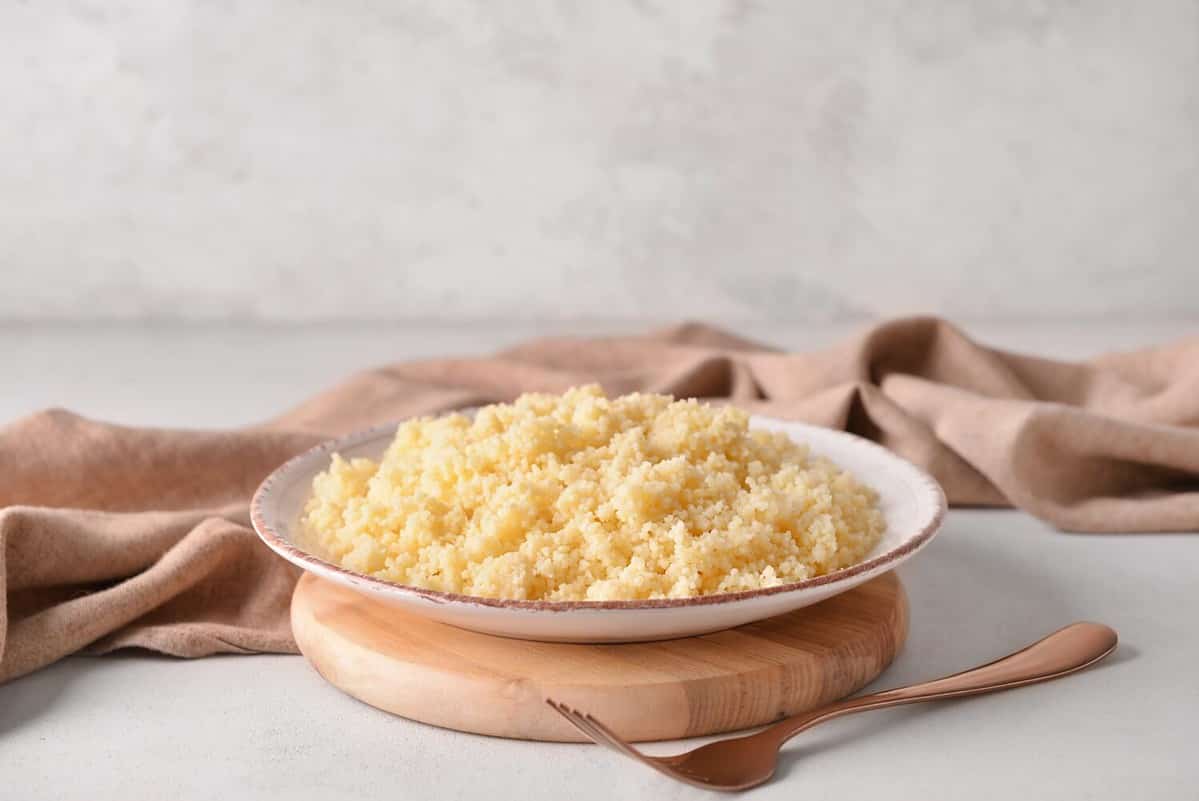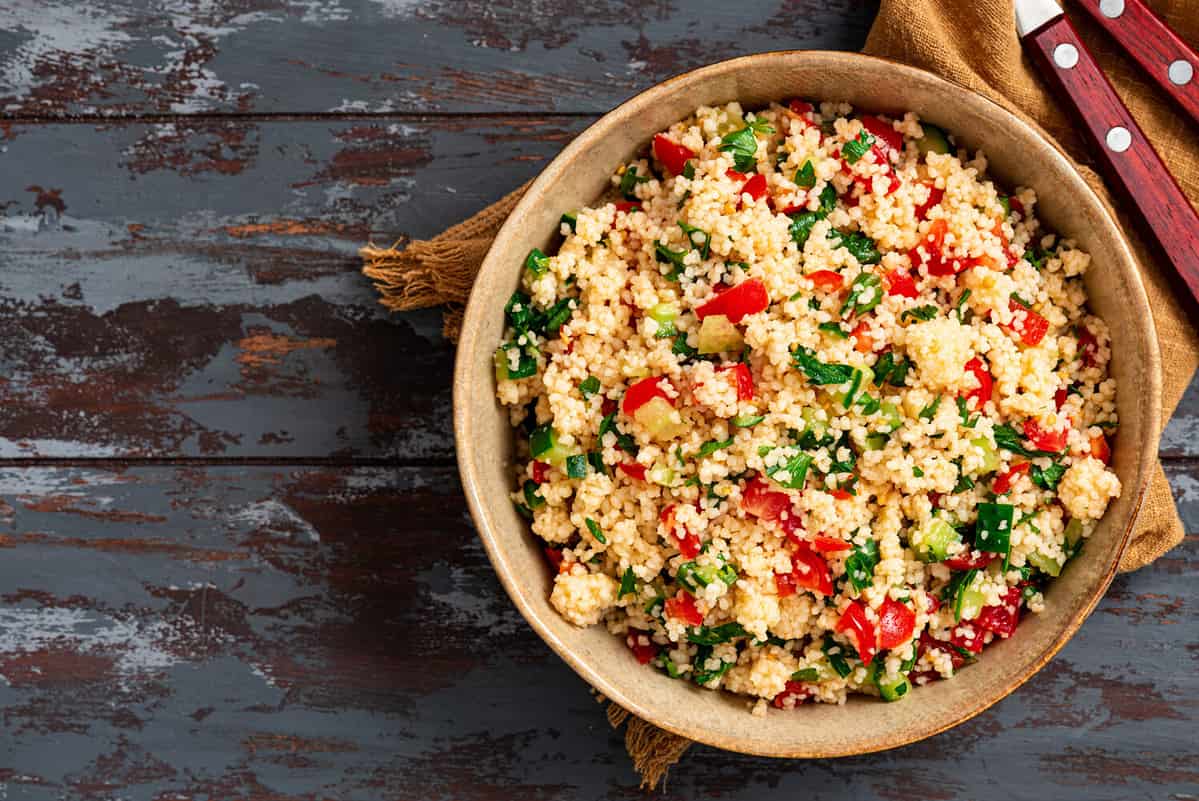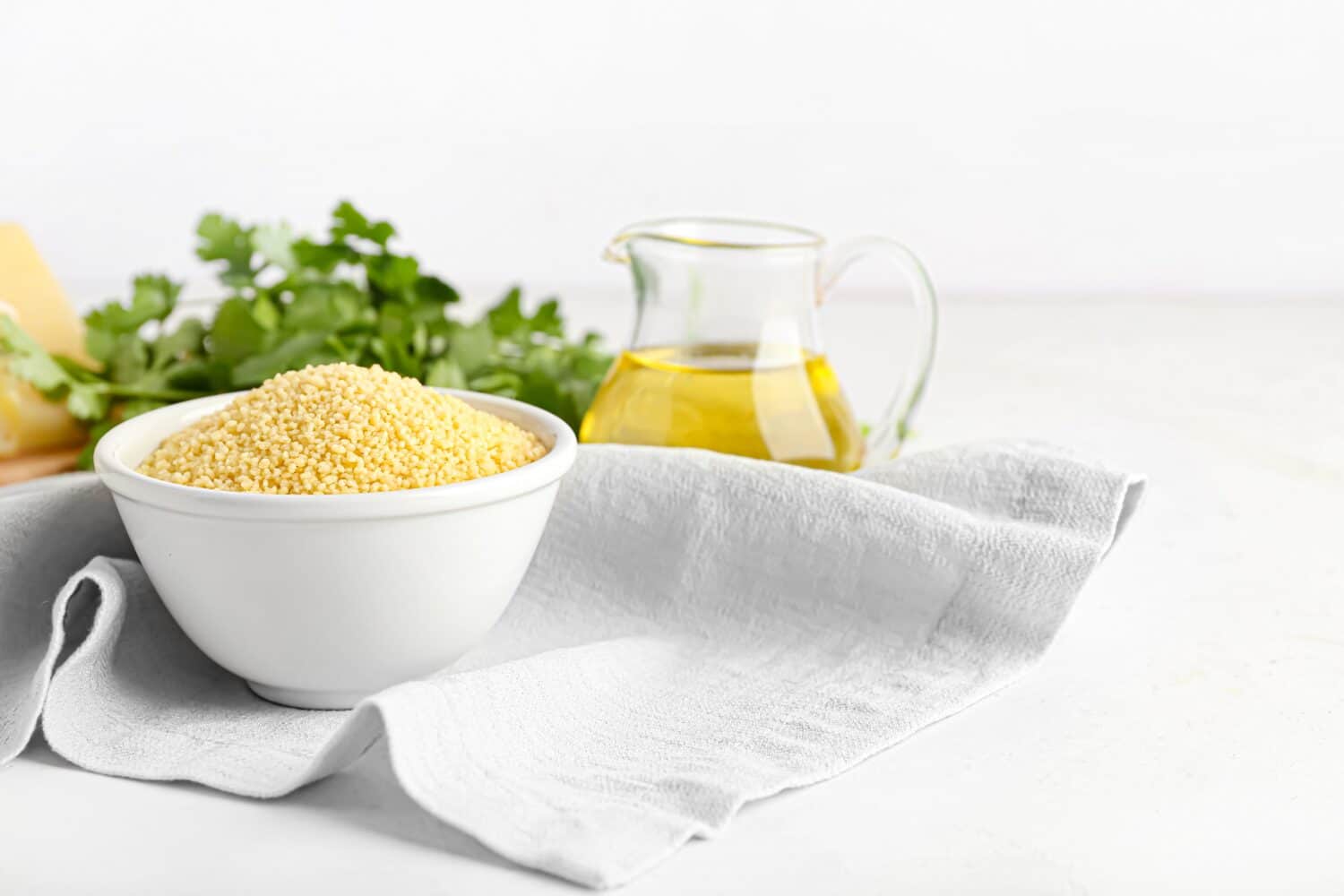In the world of grains, it can be complex to figure out exactly which ones are good for your health and which ones to steer clear of. From quinoa to whole wheat, the options are vast. Another popular side dish to eat alongside chicken, steak, or even pork chops is couscous. Couscous delivers a nutty and earthy flavor that pairs well with soups. The flavor is mild, and the grain itself is very versatile. Many benefits come with eating couscous, and a few downsides. This leads us to the question, is couscous healthy? This article dives into the science behind couscous and how it affects overall health.
What is Couscous?
Couscous is a grain that goes through processing. It has quickly become an alternative to white rice and enriched pasta. This is because it has a mild flavor texture, much like pasta, yet is adaptable to various recipes.
Couscous is made from semolina flour or durum wheat. It is a popular side dish that can be found worldwide.
There are three different types of couscous. The most popular one is the Moroccan couscous. This type is found the most often worldwide; it is the smallest one available. The largest type is Lebanese couscous.
Then, landing straight in the middle is the Israeli couscous, which carries the most flavor.
Regarding cooking time, Lebanese couscous takes the longest, while Israeli couscous is not far behind.
While quinoa and couscous can be confused for one another, they do differ in flavor and texture. Couscous has a nutty flavor and a soft and softer texture.

There are numerous ways to enjoy couscous. The mild flavor and versatility make it adaptable to a variety of recipes.
©Pixel-Shot/Shutterstock.com
Health Benefits of Couscous
Couscous comes with a few health benefits that are great for our bodies. Most of these benefits derive from couscous being high in selenium and plant-based protein.
Selenium Carries Much of the Couscous Benefits
Couscous is high in selenium. In fact, when one consumes couscous, they will be taking in 60% of the daily intake that is needed. However, what exactly is selenium, and how does it benefit our bodies? Selenium is a trace mineral. Bodies can function on a small amount of it. However, it is possible to be selenium deficient. Additionally, selenium can be found naturally in foods and be taken as a supplement.
One of the benefits of consuming selenium is the effect it has on overall thyroid health. Thyroids need selenium to function properly because it contributes to thyroid hormone production. Additionally, it protects against damage done to the cells.
More benefits of consuming selenium include possibly decreasing inflammation, risk of cardiovascular disease, and plaque buildup. Additionally, selenium may reduce the risk of LDL cholesterol buildup, which is the “bad” cholesterol.
That's not all! Selenium has a few more benefits. First, some studies point towards selenium reducing the risk of certain cancers.
Lastly, selenium may benefit in aiding in immune health. Helping our immune systems function in the necessary way to protect against viruses and bacteria.
There are downsides to having a selenium deficiency. These include a risk of certain cancers and affecting our immunity function.
Another benefit of consuming couscous is the fact that plant-based protein is in it. The reason our bodies need plant-based proteins is because our bodies do not produce them. These amino acids are essential for our bodies to undergo metabolic function.
Downsides of Couscous
Although couscous does contain some very beneficial health perks, there may be a few downsides to eating this grain.
For starters, other than selenium, there are not many other nutrients that are in couscous. While there are some trace amounts of fiber and potassium in it, couscous is not an excellent source of these certain nutrients.
Also, since couscous is a grain, it does contain gluten. In fact, it is high in gluten content. Therefore, those with gluten intolerances and sensitivities should avoid this food.
Lastly, since couscous contains carbohydrates, it has the possibility of increasing blood sugar levels. The quick increase in blood sugar levels may lead to a spike. A spike in blood sugar may have adverse effects on some individuals. Therefore, it is important to watch the intake of carbohydrates if this is the case.

Couscous will take on the flavor of the ingredients with it. Therefore, do not be afraid to play around with various new and tasty recipes.
©Svetlana Monyakova/Shutterstock.com
Couscous Recipes to Try
Couscous is a versatile and mild grain. The versatility and mild flavor work in favor of the cook because it means couscous can adapt to many different recipes! If you are looking for a new recipe to try today, give one below a chance.
- Moroccan Couscous Recipe
- Easy Couscous
- Lemon Herb Couscous Salad
- Couscous | RecipeTin Eats
- Autumn Pearl Couscous Salad
Key Takeaways
Couscous can be delicious, and since it is a grain, many people wonder if it is healthy. Below are the key takeaways.
- Couscous is high in gluten, and one should not consume it if one has gluten intolerances or sensitivities.
- Gluten also can lead to blood sugar spikes, which can adversely affect overall health.
- Couscous is not a nutrient-rich food. Therefore, it is important to get the daily recommendations for essential nutrients from alternatively nutrient-rich foods.
- This grain contains a good amount of selenium, which benefits our overall health in several ways.
- Selenium is in food and supplements and is vital for our daily nutrients. Couscous contains 22% of the daily value.
- Additionally, selenium can aid in thyroid health and immune function and reduce the risk of certain health conditions such as inflammation, heart disease, and plaque buildup.
- Couscous also contains a plant protein important for overall health and metabolic function.
So, Is Couscous Healthy?
The question remains: is couscous healthy? The answer is yes. There are many health benefits to consuming couscous. Of course, with the versatility of this grain, the health benefits will be subjective. If the couscous recipe contains too many unhealthy additives, the health benefits will significantly diminish.
However, couscous is full of selenium, which benefits our health in many ways, as well as plant-based protein. If one has a gluten intolerance, however, it will be important to receive their daily value of selenium elsewhere. There are many different ways to eat couscous, which adds to its appeal! Add in olive oil vegetables, or even eat on its own. The fluffy texture and nutty flavor only need to speak for themselves.
The image featured at the top of this post is ©Pixel-Shot/Shutterstock.com

